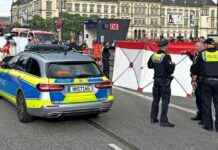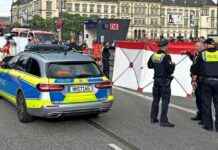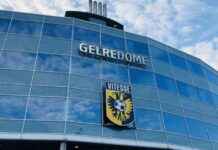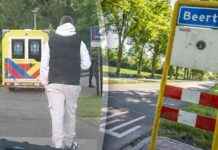It was news that faded a bit in the face of Russia’s attack on Ukraine a year ago, but it had media repercussions. The President of the Federal Intelligence Service (BND) was in Kiev on February 24, 2022, when Russia invaded Ukraine. The day before, Bruno Kahl had flown there in his service plane to hold talks with the Ukrainian intelligence service.
When, on February 23, there were growing indications of the imminent Russian attack in western capitals and also in Berlin, the German ambassador in Kiev was ordered back to Berlin. And right away. In an evacuation convoy, she left the Ukrainian capital late in the evening of February 23. Not so bald.
The head of Germany’s foreign intelligence service stayed in Kiev. Only the next day, while the Russian attack was already in full swing, did he, too, set out for the western Ukrainian border. In the German media at the time, it was portrayed as an embarrassing breakdown and hasty flight – apparently unsuspectingly, Kahl flew there at the beginning of the war, then sent his plane home in an emergency and missed the first evacuation convoy, so that a second one had to be improvised for him. There it was again, the old song about the stupid German slouch hats.
People familiar with the process have always dismissed this account as inaccurate. Now, for the first time, the BND President has commented on the events of a year ago. “My trip to Kiev had been planned for a long time,” Kahl told WELT. It was then specifically agreed at the Munich Security Conference in 2022, just a few days before the outbreak of war.
“Our Ukrainian counterpart showed great interest in this visit and asked me not to cancel under any circumstances,” reports Kahl. This was “an important sign of solidarity” for both sides. “My visit was made fully aware of the risk and all conceivable scenarios. Ultimately, I was just doing my job with my trip to Kiev.”
His visit, said Kahl, was shorter than planned, “but there was not the least bit of a hasty ‘escape from Kiev’ or even an ‘evacuation’, which was rumored in some media.” The BND President rejects the service plane sent home in a hurry from Kiev.
“In view of the threat of a Russian attack on Ukraine, we had decided from the outset to send the service aircraft back as soon as we arrived in Kiev, as the airspace would be closed if that were the case. From this you can see how we assessed the situation – namely in such a way that it could get serious at any time. In the run-up, we went through different scenarios with our crisis team.”
Kahl confirms media reports that he met the German ambassador in Kiev for dinner on the eve of the Russian attack, but denies missing her evacuation convoy that late evening. During the joint dinner, the ambassador received “a call from Berlin” in which she was asked to leave Ukraine that same evening. I consulted with my employees and decided to stay.” The next day, talks had to be held with the Ukrainian partners. The other day, it was the one that changed the world.
“So it happened that my people and I were Germany’s last official representatives in Kiev on February 24,” recalls the BND President. “We also secured the German embassy, destroyed some things, took others with us. Finally, we rolled up the German flag and took it with us.”
Asked whether panic or fear arose in his environment in this situation, Kahl explained: “No, I wasn’t afraid, I was with absolute professionals. Of course it was a depressing situation, but everything we did was completely level-headed, well-planned and professional.” The return trip by land – like the immediate return flight of the service plane – had also been planned from the outset.
Of course, the journey of his convoy on February 24 in the direction of the western Ukrainian border was influenced by the outbreak of war. “A lot of military vehicles were on the road around Kiev, but fewer towards the border. We drove west with five cars in the middle of a huge wave of escapees. The two-lane road was used as four lanes, but only in one direction.”
A 20-kilometer traffic jam had formed before the border. The convoy of German intelligence officers did not have to queue at the back. “The Ukrainian border guards got us through a little faster because of our diplomatic status, but it took us a total of 36 hours to get to the border.”




















